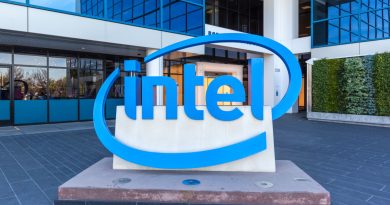Maximizing Your Health Savings Account: 5 Smart Financial Tips
Maximizing Your Health Savings Account: 5 Smart Financial Tips
Health Savings Accounts (HSAs) are a valuable tool for managing healthcare expenses and saving for future medical costs. These tax-advantaged accounts can help individuals and families save money on health-related expenses while also providing a way to save for retirement.
If you have an HSA or are considering opening one, here are 5 smart financial tips to help you maximize the benefits of your account:
1. Contribute the maximum amount each year
One of the best ways to take advantage of an HSA is to contribute the maximum amount allowed by the IRS each year. For 2021, the maximum contribution limits are $3,600 for individuals and $7,200 for families. If you are 55 or older, you can also make an additional catch-up contribution of $1,000.
By contributing the maximum amount to your HSA, you can take advantage of the tax benefits and ensure that you have enough funds to cover medical expenses both now and in the future. Plus, any unused funds in your HSA roll over from year to year, so you can continue to grow your savings over time.
2. Use your HSA for eligible expenses
HSAs can only be used to pay for qualified medical expenses, so it’s important to make sure you are using your account for eligible expenses. This includes a wide range of medical services and products, such as doctor’s visits, prescription medications, and even certain over-the-counter items.
By using your HSA for eligible expenses, you can ensure that you are getting the most out of your account and maximizing the tax benefits. Be sure to keep receipts and documentation for all of your HSA expenses, as you may need to provide this information to the IRS when filing your taxes.
3. Invest your HSA funds
Many HSA providers offer the option to invest your funds in a variety of investment options, such as mutual funds or exchange-traded funds (ETFs). By investing your HSA funds, you can potentially earn a higher rate of return and grow your savings over time.
Before investing your HSA funds, it’s important to carefully consider your risk tolerance and investment goals. Make sure to diversify your investments and regularly review your portfolio to ensure it aligns with your financial objectives.
4. Consider using your HSA as a retirement savings tool
While HSAs are primarily designed to help individuals save for medical expenses, they can also be a valuable retirement savings tool. Once you turn 65, you can withdraw funds from your HSA for any reason without penalty, although you will still owe income tax on the withdrawals if they are not used for qualified medical expenses.
By using your HSA as a retirement savings account, you can benefit from the tax advantages of the account and potentially grow your savings for the future. Just be sure to continue to track and document your medical expenses, as you may need to provide this information to the IRS when making non-medical withdrawals from your HSA.
5. Take advantage of employer contributions
If your employer offers a 401(k) or other retirement savings plan, they may also contribute to your HSA as part of your benefits package. Employer contributions to your HSA are tax-free and can help you boost your savings even further.
If your employer offers matching contributions to your HSA, be sure to take advantage of this benefit and contribute enough to your account to maximize the employer match. This can help you grow your savings faster and take full advantage of the tax benefits of your HSA.
In conclusion, maximizing your Health Savings Account involves contributing the maximum amount each year, using your HSA for eligible expenses, investing your funds, considering using your HSA as a retirement savings tool, and taking advantage of employer contributions. By following these smart financial tips, you can make the most of your HSA and secure your financial future.






